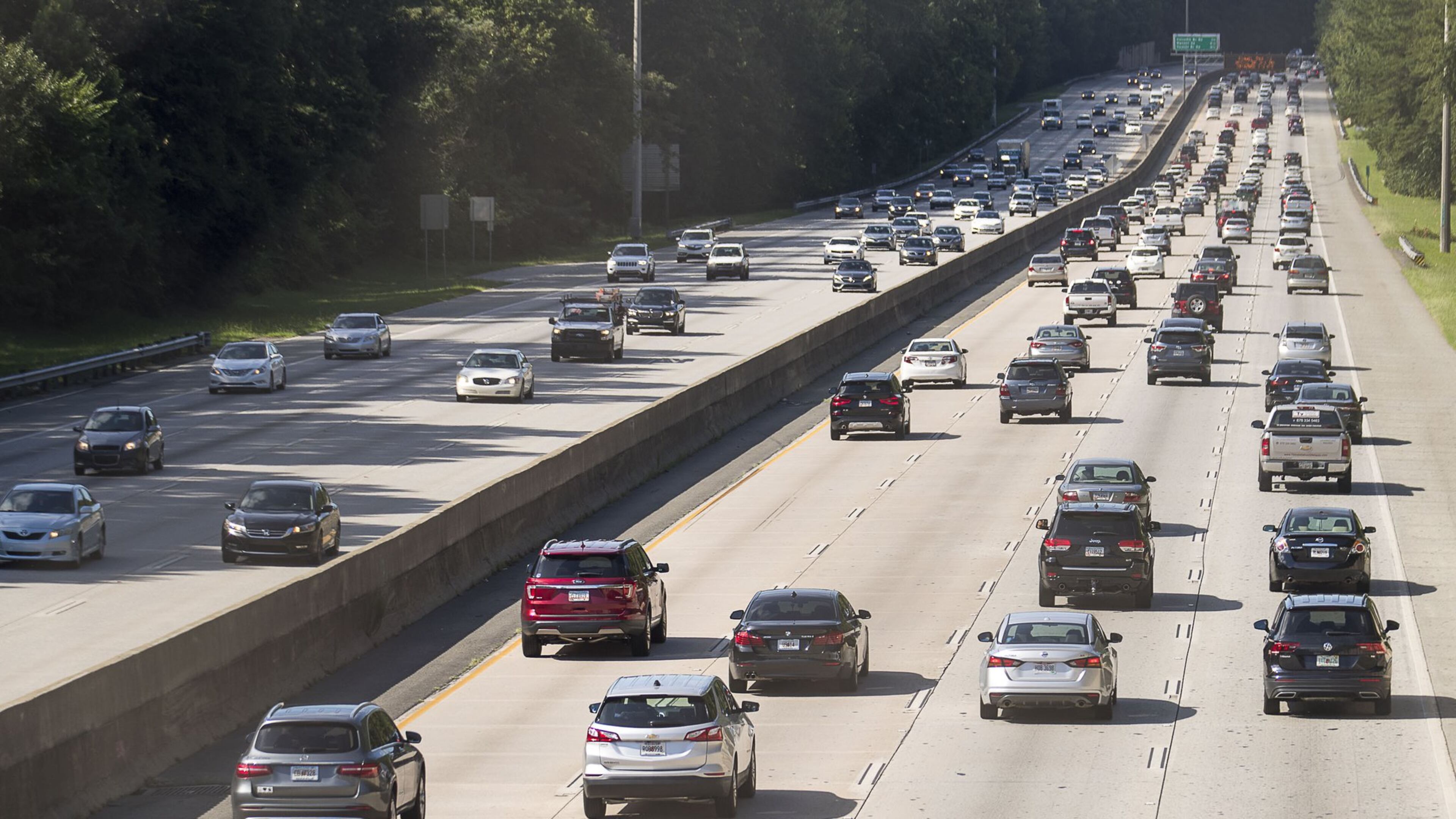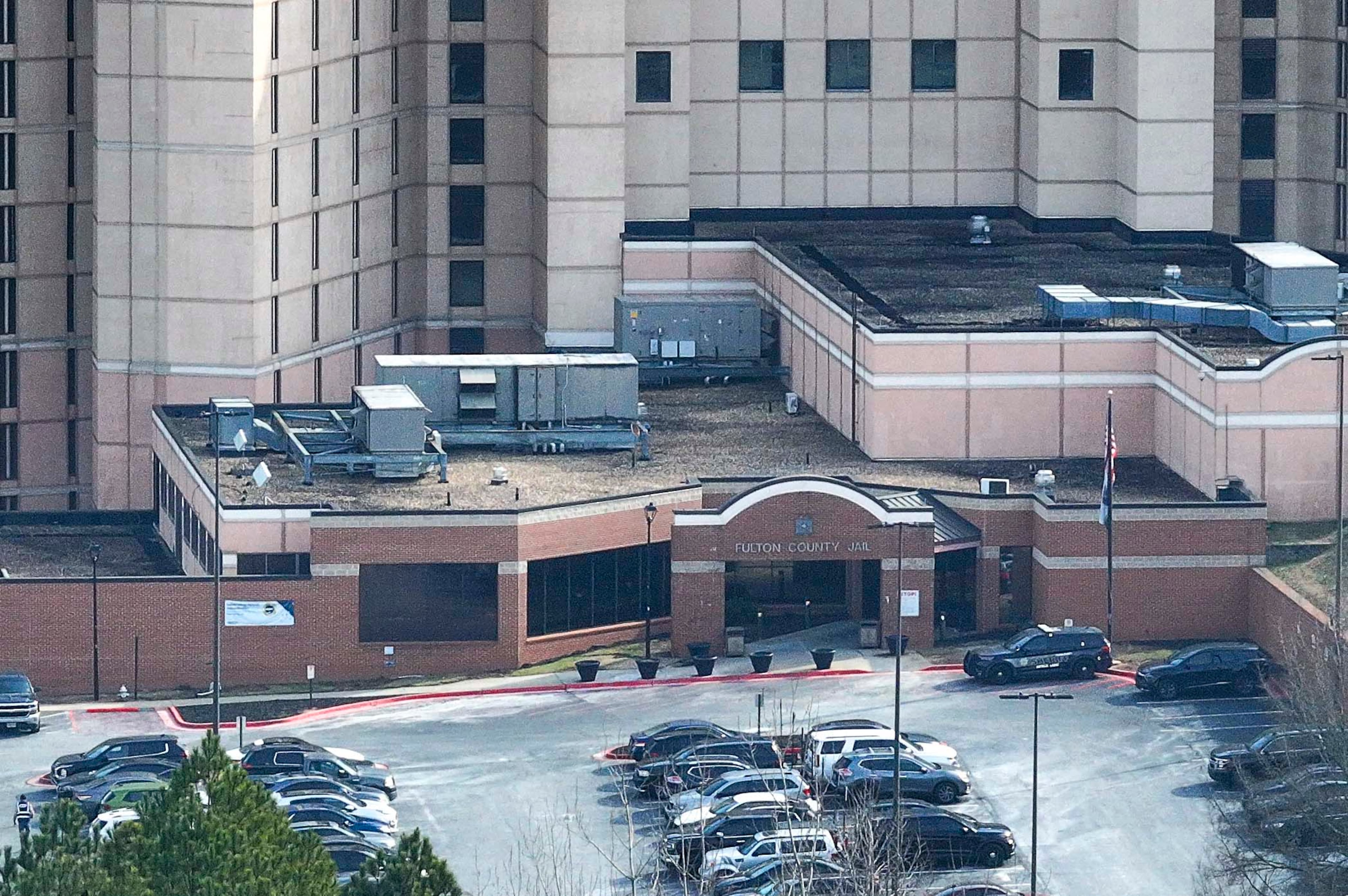From traffic to tech: Fulton’s biggest, most-read stories of 2019

A mere 365 days was 2019, but you wouldn’t know it with all the news that happened in Fulton County.
The Atlanta Journal-Constitution’s coverage of the area included everything from always-bad traffic to evolving technology.
Using our very scientific process of remembering stuff, we selected the five biggest and most-read stories in Fulton this year.
A taxing year
In July, Fulton County and the state signed a deal that settled all lawsuits from the 2017 property assessment dust-up and let taxpayers off the hook from paying more to end the drama.
The battle boiled down to whether Fulton — playing catch-up with the metro area’s increasing property values — had the right to freeze 2017 residential property values after some residents got mad.
“It was pretty big of the state to settle this without any repercussions for Fulton. They got lucky, as far as I’m concerned,” said one tax expert at the time.
A traffic-filled year
It turns out that multiple Northside cities were asking the powerful Georgia Department of Transportation for last-minute changes large and small to the $1.6 billion road project set to transform North Fulton traffic for decades.
The area is often choked with traffic, so the state hopes the project will help reduce congestion.
The Ga. 400 Express Lanes project would add 16 miles of toll lanes and four bus rapid transit stations — MARTA’s first step toward expanding service — between the North Springs MARTA station and McFarland Parkway in Forsyth County.
READ | Study: People are building tons of family homes in South, North Fulton
But Roswell, Sandy Springs and Alpharetta all wanted something extra from the project. A bridge or interchange, shrubs or a sound barrier to block homes from the highway. Some got their way and others didn't.
Experts said the amount of public involvement is unusual from the affluent cities, but a project this large drew attention from angry residents and passionate local lawmakers.
Wouldn’t you like to support our strong journalism? Your subscription helps us cover your communities in a way that no one else can. Visit https://subscribe.ajc.com/hyperlocal or call 404-526-7988 to begin or renew your subscription.
A developed year
If people weren’t talking about traffic on the Northside, they were talking about development. And for good reason.
The area has seen tons of new large-scale developments and is expected to get even more if all the plans come to fruit.
For instance, Roswell spent hours in heated talks before they approved 350 apartments at a mixed-use project on a former Super Target site and a hotel near the $100 million project where the Southern Skillet restaurant strip mall used to be. The restaurant anchored the Roswell Plaza Shopping Center on Alpharetta Street.
Alpharetta's leaders in February approved a 24,000-square-foot mixed-use development attached to the North Point Mall in order to save the dated retail center. Then, in December, the city decided to speed up development in the area by using a controversial funding mechanism called a Tax Allocation District, or TAD.

That same December night, Alpharetta gave developers of the 360 Tech Village development the blessing to build 255 apartments instead of a hotel as previously accepted.
And just across the border in southern Forsyth County, Halcyon opened in September. The $370 million mini-city sits on 135 acres with retail and office space, a fancy dine-in movie theater, plans for two future hotels and more than 650 residential units.
A technically confounding year
The traditional forms of government this year were challenged by evolving technologies including e-scooters, vaping, alarms and Airbnb.
As e-cigarettes or vaping becomes more popular and Georgia works to regulate it, cities were left ruled by a patchwork of laws.
Information released in December from the Atlanta-based Centers for Disease Control show that nationally, there have been 52 vaping-related deaths confirmed between 26 states, including Georgia.
In March, Milton leaders voted to discourage new vape shops from opening in the rural city of 40,000. And in December they discussed how to decide where people puff.
The Alpharetta City Council in October passed a law limiting where the shops can go and how much they can sell in tobacco/vape items. Milton and Johns Creek have passed similar laws.
Roswell leaders discussed in April how to handle short-term home rental companies like Airbnb and VRBO.
Sandy Springs in June started a first-in-Georgia false alarm ordinance that means police officers are working less on responding to false alarms.
After eight years of tweaking the ordinance and traveling to research cities with similar laws, the city says it is now the first in Georgia whose police will not respond to home and business burglary alarms without video, audio or in-person verification that a crime is occurring. The law also includes steep fines on alarm companies for repeated false alarms.
It could set a standard for alarm laws in Georgia, experts say.

And lastly, metro Atlanta tried to deal with an invasion of e-scooters.
Many cities were left with the task of figuring out how to handle the devices after a pair of bills set to regulate e-scooters across the state was parked during the 2019 legislative session so lawmakers could negotiate more with the scooter companies.
Many cities have chosen to ban or regulate the devices.
Four people died while riding e-scooters this year in metro Atlanta, prompting the city of Atlanta to put a temporary ban on the use of e-scooters and e-bikes from 9 p.m. to 4 a.m.
A dramatic year
City government for some reason has a reputation for being boring. But this year should change that rep forever because there was plenty of drama throughout Fulton. It didn’t hurt that it was an election year for many.
For instance, the level of discourse in Roswell got so toxic between city administrator Gary Palmer and Councilman Mike Palermo that Palmer threatened to ban the sitting councilman from city offices.
In East Point, Councilwoman Nanette Saucier is trying to get another council member removed from his seat, claiming Councilman Joshua B. Butler IV might not have been eligible to run due to a felony he committed nearly 20 years ago — one voters knew about during his campaign.
READ | By neighborhood: How long on average a person lives in metro Atlanta
And in the new city of South Fulton, the council fired its chief municipal judge Tiffany Sellers on March 19 under allegations of misconduct and "bullying," which she denies. They got a new judge in August.
Toward the end of the year, a new wave of drama broke as the South Fulton City Council voted to investigate one of its own members, Helen Z. Willis and Mayor Bill Edwards over who should be funding tax abatements in the two-year-old city.
As attention on national politics grew this year, some say that seemed to have an effect on elections in Fulton County. Four people contested their elections, the most complaints Fulton has seen in at least six years.
Like North Fulton County News Now on Facebook | Follow on Twitter
More...



